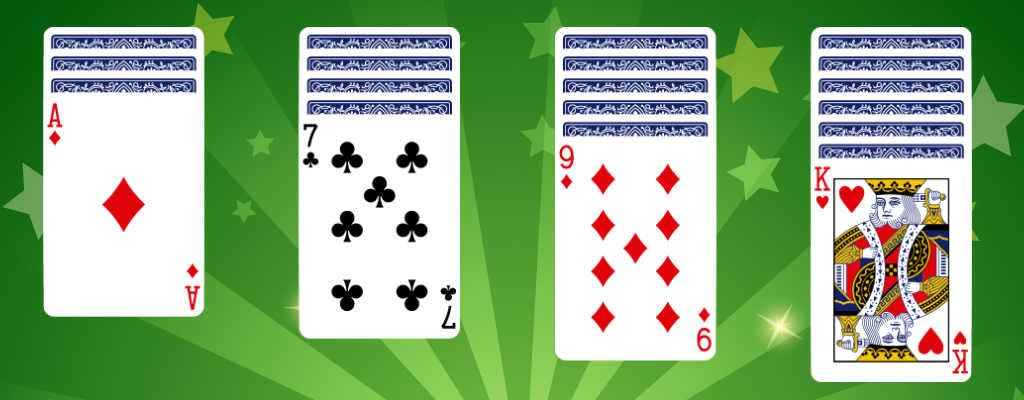
The History of the Game We Now Know as "Solitaire"
The name "Solitaire" conjures images of quiet contemplation and solitary card games. But what is the origin of this timeless pastime, and how did it evolve into the popular game we know today? Let’s find out.
Birth of Solitaire
The term "Solitaire" originates from the French word "solitaire," which means "alone" or "solitary." In its early days, the game we now call Solitaire was known as "Patience." This name reflected the solitary nature of the game, as players aimed to patiently arrange a deck of cards in a specific order without the need for opponents. Solitaire, in its recognizable form, is believed to have emerged in the late 18th century. It first appeared in print in a German gaming manual in 1788. However, its origins may stretch back further, with some historians suggesting it was played by European aristocracy even earlier. Initially, the game of Patience was enjoyed by the upper classes, often played as a quiet diversion in drawing rooms and salons.
Popularity and Variations
As time passed, Solitaire began to spread throughout Europe and across the Atlantic to North America. By the 19th century, the game had become increasingly popular, especially in England and France. It was during this period that the game's rules and variations began to solidify.
Solitaire's appeal lay in its simplicity and the individual challenge it presented. Over time, countless variations of the game emerged, each with its own unique rules and nuances. These variations included Klondike, FreeCell, Spider, Pyramid, and many more. Each variant offered a new twist on the classic card-stacking formula, keeping players engaged and providing a wide range of options for those seeking a solitaire challenge.
Klondike: The Most Famous Variant
Among the numerous Solitaire variants, one stands out as the most famous and recognizable: Klondike. Klondike Solitaire, often simply referred to as "Solitaire," became synonymous with the game itself. Its name is derived from the Klondike region in Canada, which experienced a gold rush in the late 19th century. This variant of Solitaire gained immense popularity when it was included as a pre-installed game on Microsoft Windows computers, introducing it to a global audience in the 1990s. Klondike remains the default Solitaire game on many digital platforms, contributing to its continued prominence.
Concluding it
The history of the game we now know as "Solitaire" is a testament to its enduring appeal and adaptability. Originally called "Patience," this solitary card game has evolved over centuries, capturing the hearts and minds of players worldwide. From its aristocratic origins to its presence in modern digital devices, Solitaire has retained its charm as a game of skill, strategy, and patience. With hundreds of variations to explore and enjoy, Solitaire continues to be a beloved pastime that transcends generations and borders, offering a timeless opportunity for individuals to enjoy the simple pleasure of solitary play.
Related Articles

Solitaire Speedrunners: Inside the Niche World of Competitive Card Flipping
It’s all about those milliseconds and microseconds for the solitaire speed-runners. Today we discuss this Niche world of competitive card flipping.

Solitaire in Space: Why Astronauts, Submariners, and Antarctic Scientists Play the Same Game You Do
From the Atlantic, to Jupiter, solitaire has been to places you can only dream of. Let’s discuss why solitaire is everyone’s, literally everyone’s, go-to game.

Horror Games Influenced By Solitaire
The popularity and success of horror games can be attributed to several factors, and two of those that bear the most weight are the story and theme of the game. Though a unique concept in horror gaming, implementing Solitaire into the overall gameplay provides a distinctive appeal to both horror and card gaming fans.

Stacking Wins Solo: What Solitaire Reveals About the 'Dude Gaming' Mindset
Are you familiar with the 'Dude Gaming' mindset? Well, we’re here to help you get familiar with it and, why solitaire is one of their favorite.
